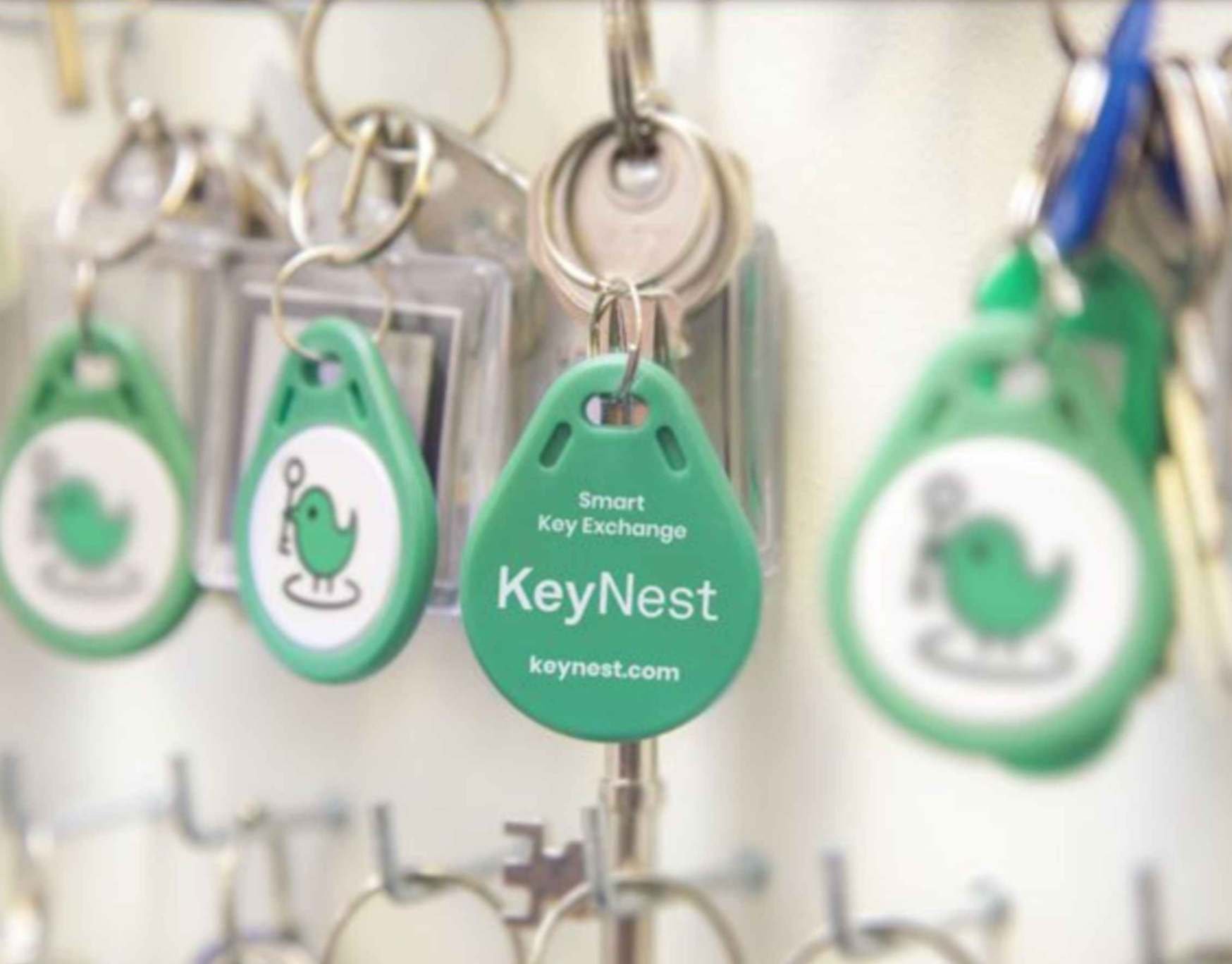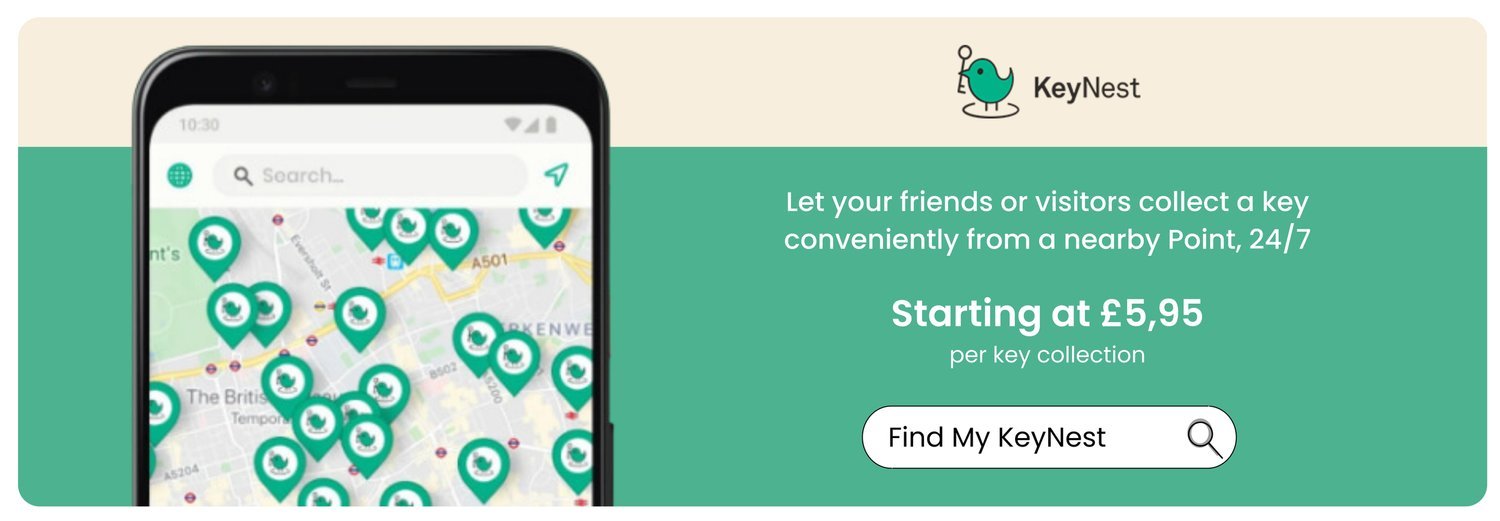Over 1500 key exchange locations nationwide
Airbnb & Holiday Let Regulations In Cardiff This 2025
As Cardiff grows as a popular destination for holiday makers, short term lets and platforms like Airbnb have become an integral part of its accommodation market. Property owners looking to let out their holiday homes or main residences need to understand the legal requirements and planning permissions for short-term rentals in Wales. With new regulations and licensing schemes on the horizon, 2025 brings fresh challenges and opportunities for holiday lets in the UK.
From understanding use class changes to navigating safety requirements, landlords and property owners must remain informed to operate legally and responsibly. Cardiff council plays a significant role in enforcing these regulations, aiming to balance the growing demand for visitor accommodation with the housing needs of local communities. The rise of holiday rental platforms like Airbnb and Booking.com has prompted local authorities to propose measures like mandatory national registration and council tax premiums on second homes.
Whether you're renting out your main home or managing multiple properties, this guide will help you navigate Cardiff’s regulatory landscape. Let’s explore the essential steps to ensuring compliance while maximizing your rental income.
Understanding The Licensing Scheme For Short-Let In Cardiff
Licensing schemes for short-term lets are a critical consideration for Airbnb hosts in Cardiff. The Welsh government has introduced measures requiring a mandatory national register for all holiday lets in the UK. This aims to keep communities intact while giving local councils more control over short-term rental operations.
Property owners must obtain a permitted development rights license to legally let out their properties as holiday accommodations. Licensing schemes ensure that landlords meet specific safety requirements and maintain a high standard of visitor accommodation.
Operating without proper licensing can lead to significant fines or other penalties, impacting your rental business.
Things To Keep In Mind
Mandatory Licensing
Under the new national scheme, all short-term holiday lets in Cardiff must be registered to operate legally. This requirement ensures that hosts comply with local regulations and meet the necessary safety and quality standards. The licensing process is aimed at regulating the growing short-term rental market, ensuring fair competition and proper management.
It also helps local authorities monitor the sector to ensure it aligns with community and neighborhood standards. This mandatory registration creates an official record of short-term rental operations in the city, increasing accountability.
Safety Standards
To qualify for a license, short-term rental properties must meet specific safety requirements, ensuring the well-being of guests. These standards may include fire safety measures, gas safety checks, and the provision of appropriate security features like smoke detectors. Compliance with these regulations is crucial to avoid potential hazards and ensure that properties are safe for both guests and hosts.
Adhering to safety standards also demonstrates a commitment to responsible hosting, which can improve a property's reputation. By maintaining high safety standards, hosts can build trust with guests and reduce the risk of legal or insurance complications.
Local Authority Oversight
Cardiff City Council plays a central role in enforcing the licensing rules for short-term rentals. The council has the authority to ensure that all hosts comply with the established regulations and can intervene if properties are operating outside the law. Local authority oversight is vital for maintaining the integrity of the short-term rental market and ensuring that operators are following the necessary guidelines.
The council may also conduct inspections to verify that properties meet safety and quality standards. This oversight ensures that short-term rentals align with the broader goals of the city, such as community well-being and housing availability.
Fines for Non-Compliance
Hosts who operate short-term rentals without the proper license may face significant penalties, including fines. The government has implemented strict enforcement measures to deter non-compliance and encourage hosts to follow the required procedures. Fines can vary depending on the severity of the violation, and repeated offenses could lead to more severe penalties, including the suspension of rental activities.
These financial consequences serve as a deterrent for hosts who might otherwise overlook the registration process. It is essential for hosts to ensure that their properties are properly licensed to avoid costly fines and maintain a good standing within the local rental market.
Improved Transparency
Licensing short-term rentals in Cardiff enhances transparency in the rental market, helping both guests and the community better understand the operations of these properties. With clear records of licensed properties, guests can feel more confident in the quality and safety of the accommodations they choose. Additionally, the licensing process provides local authorities with better oversight and the ability to track the growth and impact of short-term rentals.
This transparency helps balance the needs of tourists and residents by ensuring that rentals are operating within the legal framework. Overall, improved transparency fosters a more reliable, regulated environment for both hosts and guests.
When Do You Need To Seek Planning Permission For Short Lets?
Lawmakers in Cardiff require planning permission for short-term lets especially when renting out second homes or a property can be rented as a short-term holiday for more than 90 days a year. Cardiff council enforces planning applications for lettings that fall under a new "use class" or where there’s a significant change of use. Without planning permissions, hosts may face a series of lawsuits and can be liable for a huge amount.
Landlords must seek permission and a proposal to require planning permission to ensure their rental aligns with local zoning and housing policies. These permissions aim to address housing market concerns and ensure that short-term rentals do not disrupt residential neighborhoods due to the number of holiday lets in the city. People letting out their property or renting out their main home for 90 days or less per calendar year may not require planning permission but the specifics depend on the location and operation of the let.
Consulting with third parties or professionals on Cardiff location and how they operate can help streamline the application process and improve our understanding on the announced proposals to require planning permissions.
Planning Permission Regulations In Cardiff
Change of Use: Properties may require planning permission if they change use class.
90-Day Rule: Renting a main home for less than 90 days annually may not require permission.
Impact on Housing Market: Permissions aim to address housing crisis concerns.
Zoning Regulations: Align rental operations with local authority zoning rules.
Professional Help: Third-party services can assist with planning applications.
Compliance With Safety Requirements For Short-Term Holiday Lets
Ensuring compliance with safety requirements is essential for holiday rental properties in Cardiff. This includes meeting fire safety regulations, obtaining gas and electrical safety certifications, and providing clear emergency procedures for guests. Compliance protects both guests and property owners while ensuring the rental property meets local authority standards.
Cardiff council mandates that all short-term holiday homes undergo inspections to ensure safety standards are upheld. Non-compliance can result in fines or suspension of rental operations, disrupting your ability to provide visitor accommodations. By prioritizing safety measures, you can create a welcoming and secure environment for your guests while adhering to legal requirements.
Key Guidelines:
Fire Safety: Install and maintain smoke detectors, extinguishers, and clear exits.
Electrical Safety: Annual inspections ensure appliances meet safety standards.
Gas Safety: Certification required for all properties with gas installations.
Emergency Procedures: Provide clear instructions for guests in case of emergencies.
Local Inspections: Cardiff council regularly inspects rental properties for compliance.
Tax Implications For Short-Term Accommodation In Cardiff
Property owners renting out holiday homes in Cardiff must be aware of tax implications, including council tax premiums and income tax on rental earnings. Second homes and holiday lets are often subject to higher council tax rates, which Cardiff council uses to address local housing issues. Rental income generated from holiday lets must be declared for taxation purposes, with accurate records of earnings and expenses maintained.
Non-compliance with tax regulations can result in audits or penalties, significantly impacting your rental business. Understanding these obligations helps property owners manage their finances and remain compliant.
Insights To Be Mindful:
Council Tax Premiums: Higher rates apply to second homes and holiday lets.
Rental Income Tax: Declare all earnings from holiday lets for taxation purposes.
Expense Tracking: Maintain accurate financial records to claim deductions.
Professional Assistance: Seek advice from accountants or tax specialists.
Local Authority Oversight: Cardiff council enforces compliance with tax regulations.
How To Apply For A Holiday Let License In Cardiff
To obtain a license for holiday lettings in Cardiff involves several steps including submitting an application to the local council, providing property details and demonstrating compliance with safety requirements and the ability to cater as a visitor accommodation providers. Property owners must include evidence of fire safety measures, gas and electrical certifications, and insurance coverage in their applications.
Cardiff council reviews these applications to ensure the property aligns with local regulations and is suitable for short-term holiday lets. The process aims to create transparency and accountability for property owners while improving the quality of accommodations for visitors. Completing the application accurately and on time is essential to avoid delays or penalties.
Things To Compile And Acquire
Required Documentation: Submit safety certifications and property details.
Application Fee: Licensing may involve application fees, depending on the property type.
Local Review: Cardiff council evaluates applications for compliance.
Transparency: Licensing improves the accountability of short-term rental operations.
Timely Submission: Avoid delays by submitting applications before the rental period.
Final Thoughts
Navigating Airbnb regulations in Cardiff this 2025 requires diligence, compliance, and an understanding of the evolving legal landscape. From obtaining licenses to adhering to safety and tax requirements, property owners must take proactive steps to ensure their rental properties operate legally and responsibly. Cardiff council’s focus on licensing, planning permission, and safety measures reflects a commitment to balancing community needs with the thriving short-term rental market.
By understanding and meeting these requirements, landlords can provide excellent accommodations for guests while avoiding penalties and disruptions. The Welsh government’s initiatives, including mandatory registration and council tax reforms, aim to improve the transparency and sustainability of the holiday let market.
As Cardiff continues to attract visitors, meeting these regulatory standards is crucial for maintaining a successful and compliant rental business. By staying informed and seeking professional guidance when needed, Airbnb hosts in Cardiff can thrive in this dynamic market while contributing to the local economy and community.
About Us: KeyNest
It is vital for any hosts to sustain an efficient key management access to ensure your listing gets maintained in the Airbnb platform. That is why KeyNest, a leading smart key exchange service, is designed to simplify and secure the management of property access for hosts, property managers, and guests. With a network of thousands of partner locations worldwide, KeyNest ensures that keys are safely stored and easily accessible 24/7, providing a seamless solution for short-term rental hosts, including those on platforms like Airbnb.
Since its inception, KeyNest has revolutionized how property access is handled, eliminating the need for in-person handovers and providing an efficient alternative to traditional lockboxes or smart locks. Trusted by property managers across the globe, KeyNest's robust system ensures keys are always secure while maintaining accessibility.
Want to know more about KeyNest?
KeyNest offers you a convenient service for storing and exchanging your property keys. You can drop off a key at any of the 7,000+ locations in our network, so there’s one such Point located next to your property.
Guests, cleaners or contractors can then collect the key securely from a KeyNest Point or KeyNest Locker which is usually open 24/7. You'll be notified each time the key is picked up or returned, and you can even customize check-in and check-out times. By leveraging technology and a global network of locations, KeyNest continues to redefine property management, offering solutions tailored to meet the evolving needs of the rental market..
KeyNest has an ever-expanding global network of locations located just minutes from your property. To find out more you can contact us.
Neil Beltran 27 December 2024




